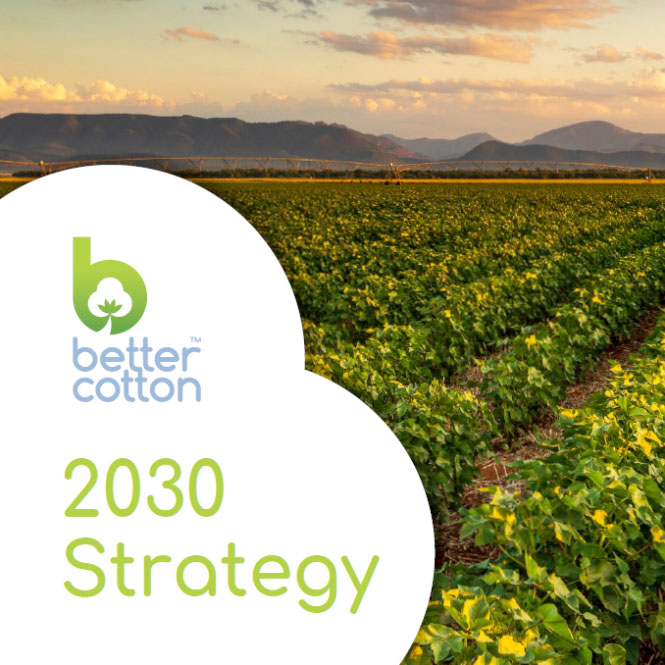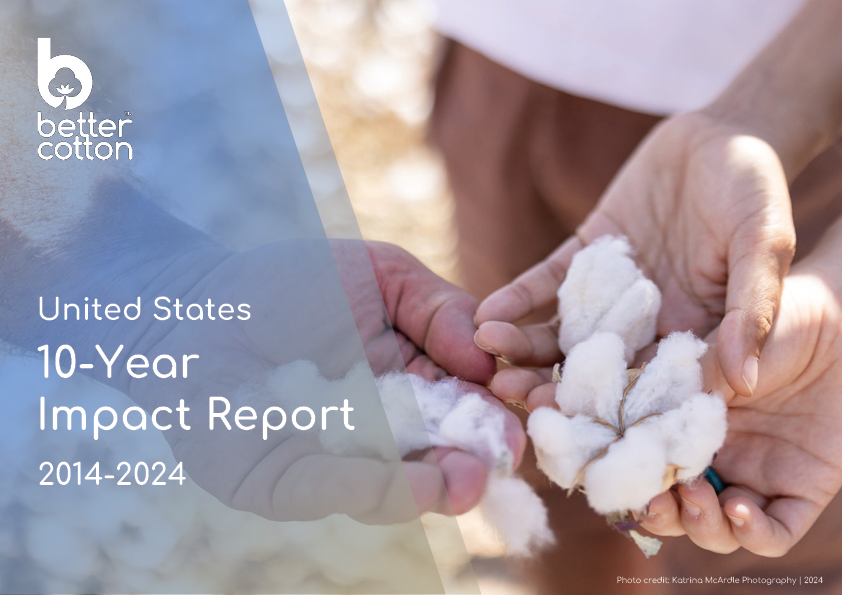- Who we are
- What we do
In just over 10 years we have become the world’s largest cotton sustainability programme. Our mission: to help cotton communities survive and thrive, while protecting and restoring the environment.
- Where we grow
Better Cotton is grown in 22 countries around the world and accounts for 22% of global cotton production. In the 2022-23 cotton season, 2.13 million licensed Better Cotton Farmers grew 5.47 million tonnes of Better Cotton.
- Our impact
- Membership
Today Better Cotton has more than 2,700 members, reflecting the breadth and diversity of the industry. Members of a global community that understands the mutual benefits of sustainable cotton farming. The moment you join, you become part of this too.
- Associate Membership
- Civil Society Membership
- Producer Organisation Membership
- Retailer and Brand Membership
- Supplier and Manufacturer Membership
- Find Members
- Member Monitoring
- Better Cotton Platform
- myBetterCotton
- Resources – Better Cotton Conference 2022
- Complaints
- Whistleblowing
- Safeguarding
- Get Involved in the Better Cotton Programme
- Thank you for contacting us
- Better Cotton’s Data Privacy Policy
- Log in
- Members’ Area
- Request for Proposals
- Better Cotton Cookie Policy
- Web Reference
- Measuring Cotton Consumption
- How to Implement the Chain of Custody Standard
- Resources – Better Cotton Conference 2023
- Certification Bodies Old
- Latest
- Sourcing
- Latest
The founding premise of Better Cotton is that a healthy sustainable future for cotton and the people that farm it is in the interests of everyone connected with it.
Let us help you find what you’re looking for
Results for {phrase} ({results_count} of {results_count_total})Displaying {results_count} results of {results_count_total}
Cotton is grown in areas of the world with formidable challenges, both environmental and social. Better Cotton’s mission dictates that we operate in many of these regions, and therefore, we must manage complex, socio-political and economic conditions in order to deliver support and interventions where they will have the most impact. In order to adapt and respond to decent work and forced labour challenges, in particular, Better Cotton is actively engaged in dialogue on these issues with subject matter experts and key stakeholders, including civil society organisations, retailers and brands, and ethical supply chains consultants.
To that end and in the spirit of our commitment to continuous improvement, Better Cotton formed the Task Force on Forced Labour and Decent Work in April 2020 to review the current Better Cotton Standard System globally. The aim of the Task Force was to highlight gaps and develop recommendations to improve the effectiveness of this system in identifying, preventing, mitigating and remediating forced labour risks. The group was comprised of 12 experts representing civil society, retailers and brands, and ethical supply chain consultancies. The Task Force worked virtually for six months to review current Better Cotton systems, discuss key issues and gaps, and develop proposed recommendations. The process included extensive consultations with a wider group of retailers and brands, field-level Implementing Partners and worker-focused organisations, among others. Their work culminated in a comprehensive report that outlines key findings and recommendations.
”It has been a privilege for Better Cotton to be able to work with a world-class group of independent experts,” commented Alan McClay, BCI CEO. ”Their knowledge and experience have enabled us to build a robust foundation on which we shall rebalance our activities with a stronger focus on decent work and forced labour.”
The Better Cotton Council and Management Team are reviewing the report and will carefully consider the Task Force’s findings and recommendations through the lens of Better Cotton’s 2030 Strategy. They will prepare a detailed response to the recommendations, which will be shared in January. Better Cotton recognises that strengthening our decent work programme will be a multi-year process and will require additional resources and funding. In the short-term, we will focus on strengthening our forced labour capabilities through capacity building for staff, Implementing Partners and third-party verifiers, enhancing our due diligence for selecting and retaining Implementing Partners, and revising our assurance processes to better identify and mitigate forced labour risks.
In 2021, Better Cotton is also exploring opportunities to pilot a more comprehensive set of decent work activities, including a detailed forced labour risk assessment and civil society engagement tactics, in one or two high priority regions.
Better Cotton would like to express our sincerest gratitude to the Task Force members all of whom volunteered their time and expertise, engaging wholeheartedly in the process. Their efforts have resulted in a thorough and complex analysis of an important area of social sustainability, and of the Better Cotton Standard System, and will serve Better Cotton as we continue striving to create change. We are committed to pioneering innovative approaches to promote decent work conditions in cotton fields for workers and farmers alike, which would not be possible without strong engagement from diverse stakeholders.
Please leave a few details below to download the report
Please note that all data submitted via the download form will be kept confidential. It will not be shared or used for any communications purposes.


